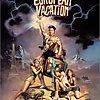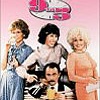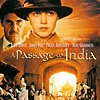Pink Floyd made a mistake in making a movie spin-off of their monumental 1979 album, whose central theme is nervous breakdown and what it's like to suffer the horrors of one. The impact of the record doesn't even begin to come across in the film version, which is redeemed only by the superb animated sequences by Gerald Scarfe. The story revolves around Pink, a lonely, broken rock star with a dreadfully traumatic past which involved losing his father in the War, being imprisoned by an over-protective mother, and emotionally abused both by sadistic school teachers and a cruel wife. Propped up by prescription drugs and ruthlessly used as a cash-cow by the music industry, he suffers a complete mental collapse and finds himself having to contend with his self-destructive tendencies, personified as himself in the guise of a neo-Nazi fanatic whose only desire is to terrorise and abuse anyone who seems to care about him. Bob Geldof is weak in the role of Pink, and in general it simply isn't possible to make a visual experience of what is essentially a brilliant musical allegory of personal emotional disaster. Scarfe's nightmarish cartoons of schoolteachers turning into an army of marching hammers are a classic piece of imagery that many people can relate to, but the whole point about The Wall is that it speaks to you by music and not pictures, leaving it to the listener to form their own relationship with the songs and fitting them to their own personal experiences.
MOVIES










Do You Remember Pink Floyd: The Wall (film, 1982)?
Do You Remember Pink Floyd: The Wall (film, 1982)?